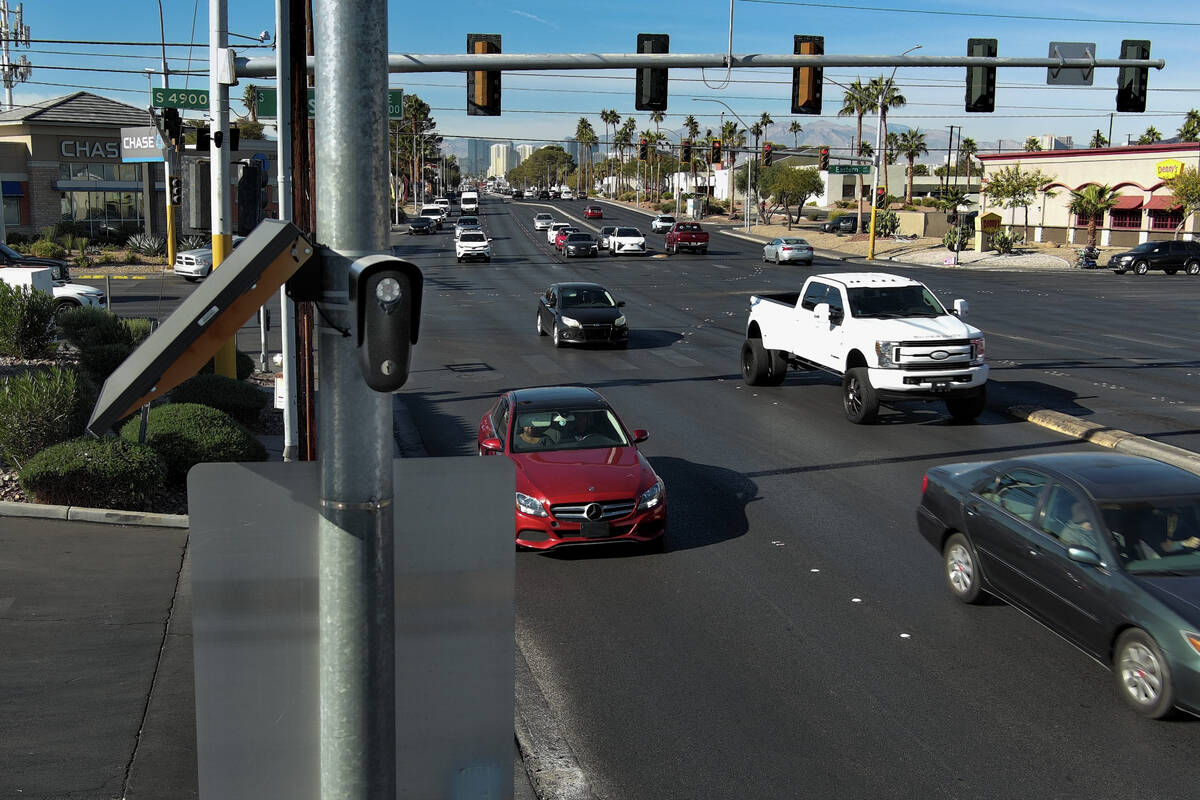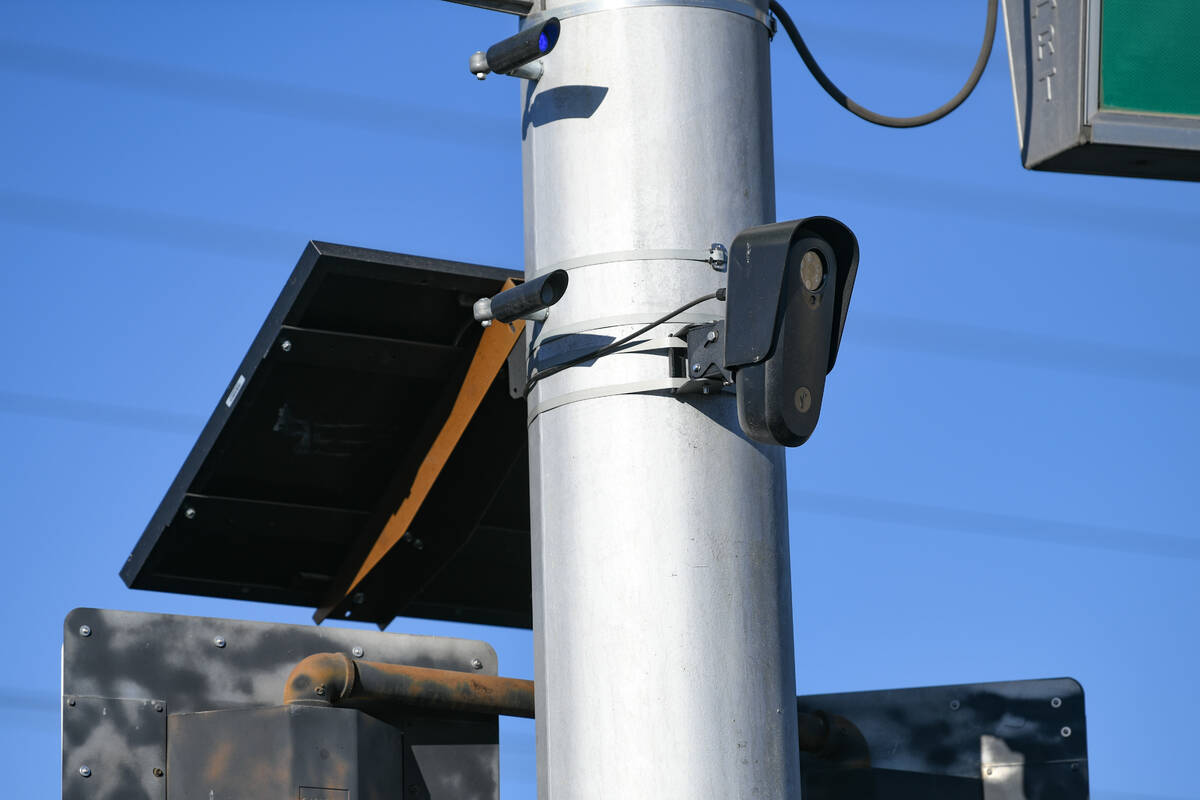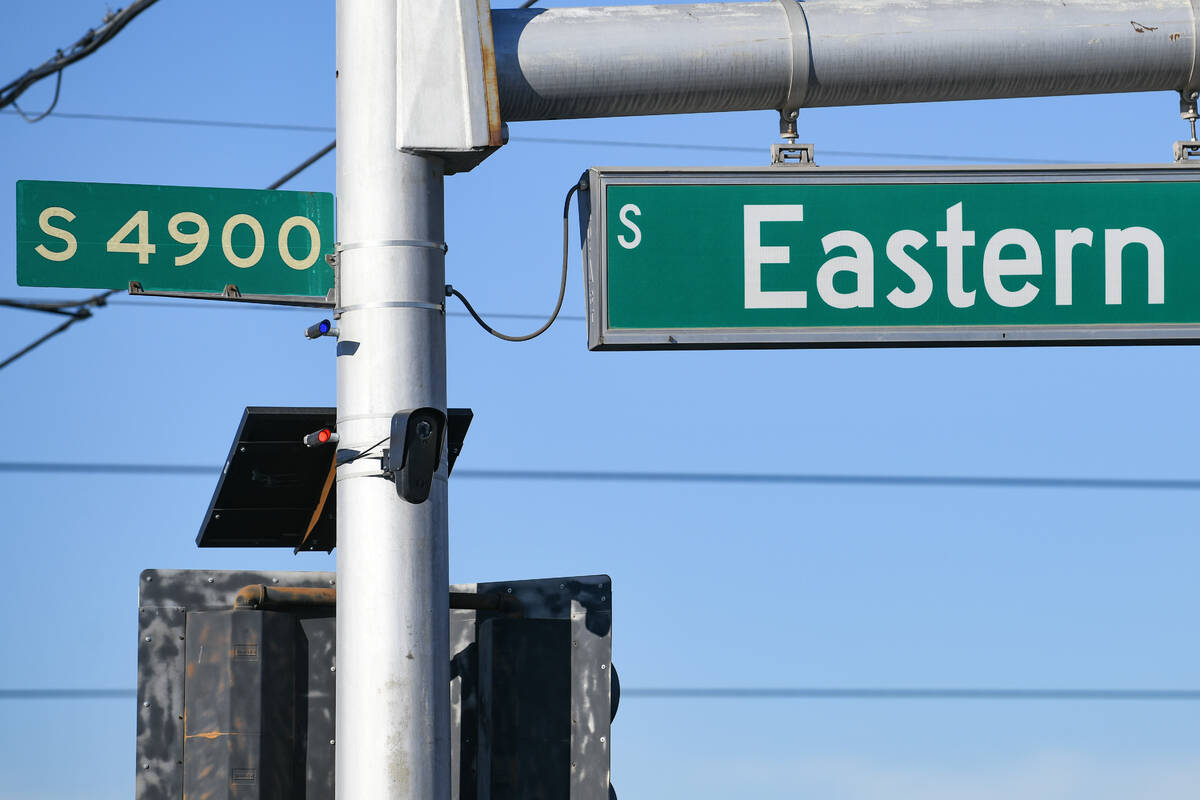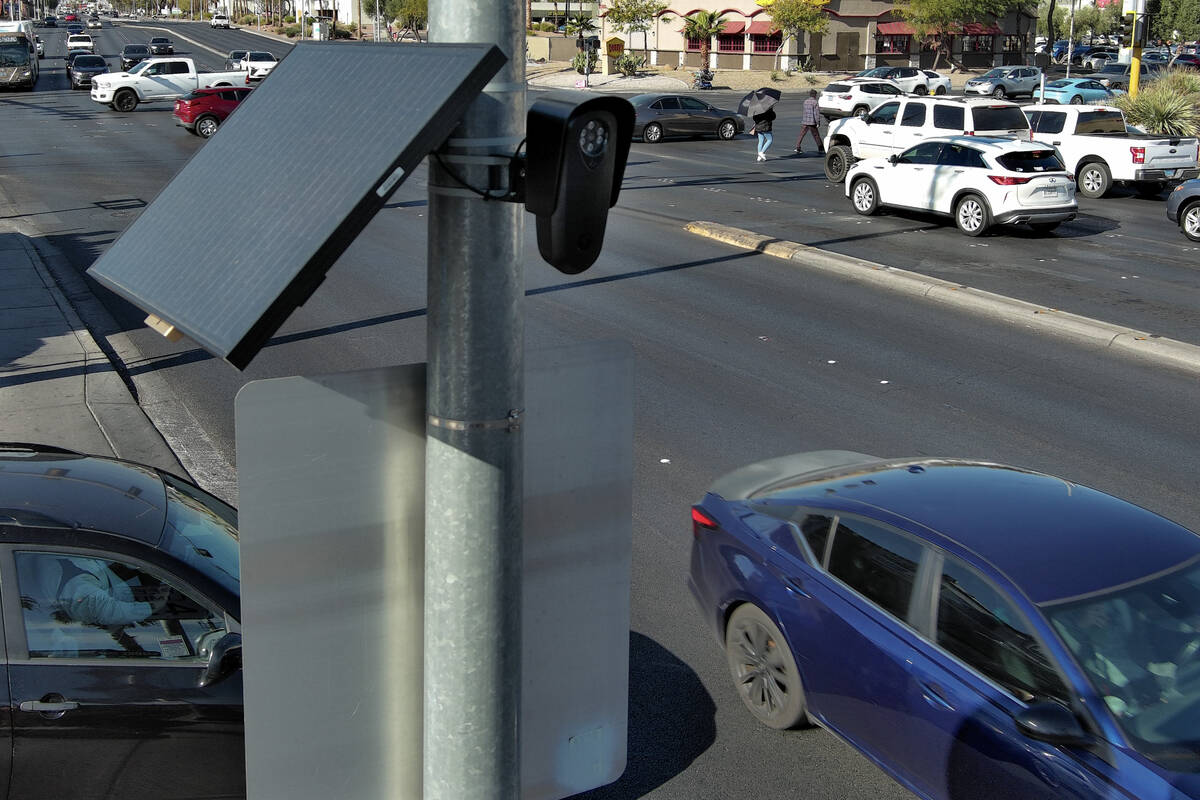‘Modern monitoring’: Civil liberties advocates raise concerns about Metro license plate cameras
The Metropolitan Police Department installed and operates license plate cameras throughout the city thanks to money donated by a venture capital firm, according to emails between Metro and one of the firm’s partners.
Civil liberties advocates said that the network of cameras is a form of surveillance that tracks people’s movements and violates privacy rights.
“This is modern monitoring,” said Rob Frommer, senior attorney at the Institute for Justice, a nonprofit public interest law firm based in Arlington, Virginia.
Police, the venture capitalists who help fund law enforcement through donations, and the co-founder of Flock Safety, an Atlanta-based company that produces the sleek cameras, have argued that the technology is revolutionizing policing and allows for the quick arrest of suspects, even without any other leads.
“This technology is changing the game. We are going to get to a place, at some point, where it becomes impossible to commit a crime,” said Metro Sheriff Kevin McMahill in a conversation with Garrett Langley, Flock Safety’s co-founder and CEO.
The conversation, which took place in October 2023 at a summit in Las Vegas put on by venture capital firm Andreessen Horowitz, is now published as a podcast on the firm’s website.
McMahill said in the podcast that he wants to find new ways to introduce this technology to Las Vegas’ communities so that they don’t feel spied on.
The cameras became a reality in Las Vegas after venture capital firm Andreessen Horowitz donated money to Metro toward the purchase of “state-of-the-art public safety technologies” from the firm’s portfolio companies, Ben Horowitz wrote in a post on the firm’s website.
Metro has not confirmed the dollar amount donated, but McMahill thanked Horowitz for his donations in a podcast appearance.
Horowitz wrote in the web post that $6.3 million was donated for the technology.
The cameras are live in just over 4,000 cities in the U.S., with around 180 of them throughout Las Vegas, Langley said in the podcast.
According to Horowitz’s post, Las Vegas’ Flock Safety cameras have alerted Metro to more than a thousand stolen vehicles and has led to the arrest of around a hundred more suspects in 2024 than the year before. Langley touted similar results around the country.
But when Flock Safety cameras landed in Norfolk, Virginia, in 2023, two residents who felt that their daily activities were being monitored found the cameras so “downright creepy” that they decided to take action in the form of a lawsuit filed in October by the Institute for Justice.
“The public is largely ignorant about what’s going on with these Flock cameras, and if they realized the true power of these systems, they’d be incensed,” Frommer said.
The judicial battleground
The use of automated license plate readers like Flock Safety cameras “treats every single person as a criminal,” tracking their movements but without a court-ordered warrant, said Jacob Smith, staff attorney for the American Civil Liberties Union of Nevada.
When an officer or a judge wants to look into where somebody has been, this requires some checks and balances, like asking for a search warrant, Smith said. But tracking someone on a Flock Safety camera involves no checks and balances, he said.
A spokesperson for Flock Safety said some courts have found that license plate readers do not constitute a warrantless search because they capture only still photos of a person’s vehicle.
Since a 2017 Supreme Court decision in which the court found that the government needs a warrant to check cellphone locations, legal nonprofits such as the Electronic Frontier Foundation and Brennan Center for Justice have argued that using automatic license plate readers to look for someone should also require a warrant.
But in October, a federal court in Virginia found that evidence from a license plate reader was admissible without a warrant because the defendant wasn’t able to prove a reasonable expectation of privacy that was infringed.
“Courts have persistently found that there is no reasonable expectation of privacy in a license plate on a vehicle on a public road,” said Holly Beilin, Flock Safety’s director of communications, in an emailed statement.
“There really isn’t a whole lot of privacy left in the world that we live in today, and people know that and understand it,” said McMahill in the podcast with Langley. “What they really care about is whether or not the police department has access to this information.”
License plate-reading technology has also come under scrutiny elsewhere in the Las Vegas Valley, with critics airing similar privacy concerns after the Henderson Police Department recently announced it will be adding another 54 license plate cameras around the city and on police vehicles.
Data protection concerns
Flock Safety customers, such as police departments, own 100 percent of their data, according to a Flock Safety spokesperson. The company itself cannot sell or share the data, which is stored and encrypted in a cloud service.
“We put the onus on the community to self-manage,” Langley said in conversation with the sheriff. This means that elected officials have control over things like data retention timelines. This also means that how data is protected and stored differs in every city that uses Flock Safety cameras.
“We’re really leaving it up to the police to decide for themselves how much authority they should have,” Frommer said. “It feels like the constitutional fox guarding the henhouse.”
Neither Metro nor Andreessen Horowitz responded to requests for comment, which included questions about how the data from the cameras is stored and whether or not the venture capital firm responsible for the cameras’ presence in Las Vegas has access to any of this data.
Frommer said the data that is collected is extensive. Information collected by the automatic license plate readers gets uploaded into a database that “AI combs through,” creating a “vehicle fingerprint,” he said.
It’s this precise information that allows police to track down suspects and stolen vehicles so easily, McMahill said in the podcast conversation with Langley.
“Every piece of that technology is the equivalent of three police officers,” McMahill said. “It can get into places and see things and detect things that, I don’t care how good of a cop you are, you would never be able to see it.”
Similarly, “unlike a police officer posted at an intersection, the cameras never blink, they never sleep and they see and remember everything,” the lawsuit filed by the Institute for Justice said.
Contact Estelle Atkinson at eatkinson@reviewjournal.com. Follow @estellelilym on X and @estelleatkinson.bsky.social on Bluesky.

























